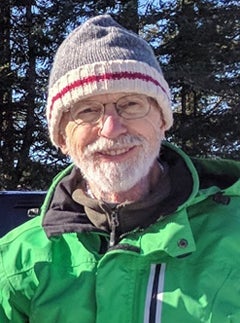It is with profound sadness that we announce that our friend and colleague, Ric Holt, passed away peacefully on April 12, 2019 at the age of 78. The following in memoriam was written by Marie Holt, Ric’s wife.
Richard (Ric) Craig Holt was born in Bartlesville, Oklahoma in February 1941. He was the youngest child of Vashti Young and C.P. Holt, alongside middle brother Bill Holt and elder sister Nancy Austere. Debbie Hendrickx is their younger sister, through C.P. Holt’s second marriage. Oklahoma was Ric’s original home, where he ran track competitively at the state level, and fixed up his Model A Ford even when it almost killed him.

After his time in Nigeria, Ric got involved with computers, working at IBM briefly in Texas then in Almaden, California, which turned out to be a useful way to avoid Vietnam. At Richard Conway’s suggestion, Ric returned to Cornell University’s new computer science program. He began his PhD under Alan Shaw, cementing several lifelong friendships over 1968, foremost being his marriage to fellow Peace Corps teacher Marie-France Beyer, who stuck with him for 54 years.
Ric worked as a computer science professor at the University of Toronto from December 1970 until 1997, during which time his children Adam (1971) and Sarah (1976) were born. Ric authored many programming books in the 1970s and 1980s, greatly inspired by his co-author, Pat Hume. His company, HSA, popularized the Turing programming language across Canada’s most populous province, and in prominent schools like Stuyvesant High School in New York City. Also in the 1980s, he developed a phonetic sign language with associated children’s books, while exploring brain science as a hobby.
Ric’s academic and consulting career in software engineering brought him to Brazil, Korea, Boston, Maine, Santa Clara, Belgium, Austria, Australia, India and beyond, during those breakthrough years of the computer revolution. A different kind of travel also took root at that time, sharing his Oklahoma family’s camping and outdoor heritage with the next generation.
Ric became Canadian in every sense, wilderness canoe camping and playing hockey weekly or more for decades, while also travelling with his family to Labrador, Newfoundland, Canada’s Maritime provinces, Oklahoma, LA, Europe, Japan, China, Alaska, Hawaii, the Queen Charlotte Islands (Haida Gwaii), Haiti, Florida swamps, Uruguay, and Argentina. He once travelled alone to Mexico to check up on an old friend whose life was in trouble.
Ric was a professor of computer science at the University of Waterloo from 1997 to 2014, where he continued to devote his soul to mentoring graduate students from countries far and wide. At the same time, Ric built up Gravel Watch Ontario into a powerful province-wide watchdog, shining light on grave and cement industry abuses unrecognized prior to then. How do we each and all fortify the “code that you can live by” — mental software, civic alliances — needed to debug our shrinking world?
Cyber-Mennonite farm life outside the big city introduced singing, fixing a historic house and barn and even dogs into his life. Eventually he moved to Quadra Island, BC with Marie-France and much of her garden in 2014. His walks along the Pacific, his choir, hiking with and teaching grandkids, and spending time with friends were nearly constant. Today his daughter Sarah Johnston is building a workaway family farm in British Columbia and his son Adam Holt is building a handheld Library of Alexandria — Internet in a Box — that is used around the world.
In 2017, Ric received a Lifetime Achievement Award from CS-Can/Info-Can for his seminal contributions in a variety of areas of computer systems research, including operating systems; programming languages, compilers and computer science education; software architecture modelling; and software analytics.
Ric died peacefully and content on April 12, 2019 at the age of 78. He decided he’d had quite enough of Parkinson’s Disease and Lewy Body Dementia. His final words refrained a 1964 song: “We sang in the sunshine, we laughed every day, and now I’m on my way.” But if you see him hitchhiking down the highway, say a real hello. And enjoy the wild ride.
A private family celebration of his life will be held later in 2019. There’s “no telephone to heaven” if we believe what was printed on Nigeria’s 1960s buses. But Ric asked that any donations be made to these organizations if necessary: